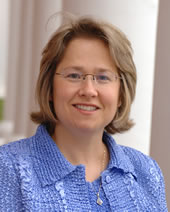 In this best-selling book, America’s #1 love and marriage experts Drs. Charles D. and Elizabeth A. Schmitz show what it takes to create and sustain a long-term loving marriage. Step-by-step they reveal their “Seven Surprising Secrets of Successful Marriage” that define a happy relationship—togetherness, truthfulness, respect and kindness, staying fit, joint finances, tactile communication, and surprise and unpredictability. Taking an upbeat, positive approach to living happily ever after, Building a Love That Lasts helps couples focus on what’s right in their partnership rather than on what’s wrong. The book includes many inspiring and beautiful stories of couples who’ve been together for at least 30 years.
In this best-selling book, America’s #1 love and marriage experts Drs. Charles D. and Elizabeth A. Schmitz show what it takes to create and sustain a long-term loving marriage. Step-by-step they reveal their “Seven Surprising Secrets of Successful Marriage” that define a happy relationship—togetherness, truthfulness, respect and kindness, staying fit, joint finances, tactile communication, and surprise and unpredictability. Taking an upbeat, positive approach to living happily ever after, Building a Love That Lasts helps couples focus on what’s right in their partnership rather than on what’s wrong. The book includes many inspiring and beautiful stories of couples who’ve been together for at least 30 years.
Drs. Charles and Elizabeth Schmitz’s award-winning book reveals how to sustain a long-term loving marriage. In addition to exploring the seven key ingredients that define a successful marriage—togetherness, truthfulness, respect and kindness, staying fit, joint finances, tactile communication, and surprise and unpredictability—the authors have included hundreds of insightful and practical interviews with happy couples.
Drs. Charles and Elizabeth Schmitz are renowned love and marriage experts and multiple award-winning authors. As the Marriage Experts for PsychologyToday.com, the National Marriage Advice Examiners for Examiner.com and “The Official Guides To Marriage” and the Love and Marriage Experts for www.SelfGrowth.com, the Doctors provide inspiration and guidance to readers around the globe.
As America’s #1 Love and Marriage Experts, Drs. Charles and Elizabeth Schmitz know that simple things matter in relationships. They understand what makes relationships work because they have conducted three decades of research on successful marriages, as well as sharing personal experience drawn from their own 43-year marriage.
Dr. Charles D. Schmitz is a highly successful faculty member and administrator in higher education. He is currently the Dean of the College of Education at the University of Missouri-St. Louis and a longtime Professor of Counseling and Family Therapy, where he focuses on counseling psychology and leadership. During his distinguished career, Charles has received more than 40 local, state, and national awards; published 200 articles, manuscripts, books, and scholarly papers; delivered 600 speeches and professional presentations throughout the world; and has frequently appeared on radio, television, and in print. He received his Ph.D. from the University of Missouri–Columbia.
Dr. Elizabeth A. Schmitz is a full-time author and lecturer. She has served as an award-winning administrator and educator for 36 years. She received her Ed.D. from the University of Missouri-Columbia and has lectured at numerous colleges in the areas of counseling and leadership. Elizabeth has received 25 local, state, and national awards; published over 150 articles, manuscripts, and books; delivered over 400 speeches and presentations; made numerous radio and television appearances; and been quoted extensively in the media. She is president of Successful Marriage Reflections in St. Louis, Missouri, where she and Charles reside.
Together, the Schmitz’s have written the award-winning book, Golden Anniversaries: The Seven Secrets of Successful Marriage, and are popular speakers and talk show guests. Their latest book, Building a Love That Lasts, provides more surprising insights on creating successful relationships from America’s favorite love and marriage experts (Jossey-Bass/Wiley 2010).
Read more about Charles and Elizabeth Schmitz at www.simplethingsmatter.com.
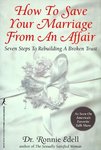 A guide by the author of The Sexually Satisfied Woman explains why affairs happen, offers preventative advice, and presents a seven-step “reconstructive” program for couples who are willing to recommit to one another.
A guide by the author of The Sexually Satisfied Woman explains why affairs happen, offers preventative advice, and presents a seven-step “reconstructive” program for couples who are willing to recommit to one another. What could be good about a bad marriage? The good news is, you can get beyond that old marriage and its destructive habits, and build a brand-new one with the same spouse. And you can do it in just 90 days, even if only one spouse is committed to change. Thousands of couples in marriages that are on the brink will never enter a therapist’s office, and for others it’s too late by the time they do agree to come. But for more than 20 years, David Clarke has seen marriages turn around in just 12 weeks. Here he takes his 90-day plan and presents it using humor, Scripture, and personal stories to help couples turn difficult marriages into great ones. Whether the issue is communication, the kids, negative attitudes, or even serious sin, Clarke’s personalized approach will put readers on the road to a great marriage.
What could be good about a bad marriage? The good news is, you can get beyond that old marriage and its destructive habits, and build a brand-new one with the same spouse. And you can do it in just 90 days, even if only one spouse is committed to change. Thousands of couples in marriages that are on the brink will never enter a therapist’s office, and for others it’s too late by the time they do agree to come. But for more than 20 years, David Clarke has seen marriages turn around in just 12 weeks. Here he takes his 90-day plan and presents it using humor, Scripture, and personal stories to help couples turn difficult marriages into great ones. Whether the issue is communication, the kids, negative attitudes, or even serious sin, Clarke’s personalized approach will put readers on the road to a great marriage. Money and Marriage Two: A Narrative Guide to Financial, Estate, and Retirement Planning in a Second Marriage is about law, money, and marriage. Each of us wants love and financial security, but there can be conflicting interests in a second marriage when you have children from the first. Here, you will learn legal and financial ways to support and strengthen your second marriage as you negotiate and make smooth the financial relationship. At the same time, however, you will learn hardball techniques to protect yourself and your children. Many second marriages don’t last, and blood is blood. The question you may ask is, “Can I be fair, yet smart?”
Money and Marriage Two: A Narrative Guide to Financial, Estate, and Retirement Planning in a Second Marriage is about law, money, and marriage. Each of us wants love and financial security, but there can be conflicting interests in a second marriage when you have children from the first. Here, you will learn legal and financial ways to support and strengthen your second marriage as you negotiate and make smooth the financial relationship. At the same time, however, you will learn hardball techniques to protect yourself and your children. Many second marriages don’t last, and blood is blood. The question you may ask is, “Can I be fair, yet smart?”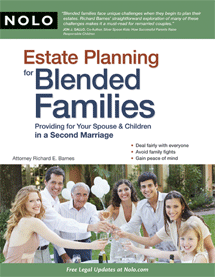 In almost half of all stepfamilies, each parent brings one or more children to a new marriage and while other books give general information about wills, trusts, and taxes, many of them may not apply to couples in second marriages.
In almost half of all stepfamilies, each parent brings one or more children to a new marriage and while other books give general information about wills, trusts, and taxes, many of them may not apply to couples in second marriages. 

 About half of all marriages in the United States end in divorce, and most of these divorces result in unnecessary collateral damage. Now there is a better way.
About half of all marriages in the United States end in divorce, and most of these divorces result in unnecessary collateral damage. Now there is a better way.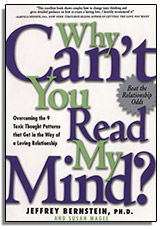 Bernstein, a psychologist specializing in couples and family therapy, and Magee (The Power of Positive Confrontation) offer partners a way to renew the spark in their relationships in this succinct self-help guide. They claim that one of the most significant steps is to focus on yourself rather than your partner by ridding yourself of toxic thoughts, “negative thoughts that have lost their basis in reality and have gotten out of control.” Examining nine toxic thought patterns (such as jumping to conclusions, labeling one another and playing the “blame game”), the authors provide well-researched explanations, relevant examples and practical alternatives to transform negative thoughts and behaviors into positive and constructive ones.
Bernstein, a psychologist specializing in couples and family therapy, and Magee (The Power of Positive Confrontation) offer partners a way to renew the spark in their relationships in this succinct self-help guide. They claim that one of the most significant steps is to focus on yourself rather than your partner by ridding yourself of toxic thoughts, “negative thoughts that have lost their basis in reality and have gotten out of control.” Examining nine toxic thought patterns (such as jumping to conclusions, labeling one another and playing the “blame game”), the authors provide well-researched explanations, relevant examples and practical alternatives to transform negative thoughts and behaviors into positive and constructive ones. 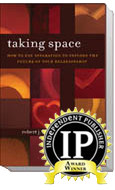 With the high rate of divorce and breakups, marriage and family experts point to the fact that people don’t learn from the mistakes of a failed relationship and assume the next relationship will be better, making little effort to fix or understand what didn’t work.
With the high rate of divorce and breakups, marriage and family experts point to the fact that people don’t learn from the mistakes of a failed relationship and assume the next relationship will be better, making little effort to fix or understand what didn’t work.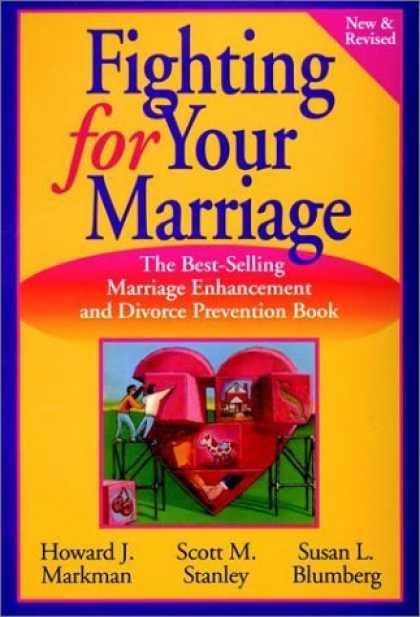
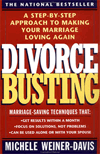 Generic marriage-saving advice has no place in this book. Instead you will find a step-by-step, nuts-and-bolts approach to getting unstuck and making your marriage loving again.
Generic marriage-saving advice has no place in this book. Instead you will find a step-by-step, nuts-and-bolts approach to getting unstuck and making your marriage loving again.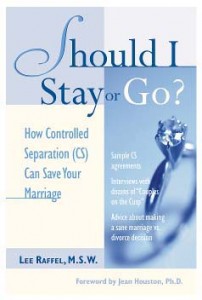

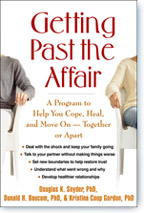
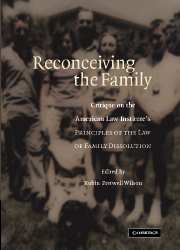 This book provides a critical examination of and reflection on the American Law Institute’s (ALI) Principles of the Law of Family Dissolution: Analysis and Recommendations (‘Principles’, arguably the most sweeping proposal for family law reform attempted in the U.S. over the last quarter century. The volume is a collaborative work of individuals from diverse perspectives and disciplines who explore the fundamental questions about the nature of family, parenthood, and child support. The contributors are all recognized authorities on aspects of family law and provide commentary on the principles examined by the ALI – fault, custody, child support, property division, spousal support, and domestic partnerships, utilizing a wide range of analytical tools, including economic theory, constitutional law, social science data, and linguistic analysis. This volume also includes the perspectives of U.S. judges and legislators and leading family law scholars in the United Kingdom, Europe, Canada and Australia.
This book provides a critical examination of and reflection on the American Law Institute’s (ALI) Principles of the Law of Family Dissolution: Analysis and Recommendations (‘Principles’, arguably the most sweeping proposal for family law reform attempted in the U.S. over the last quarter century. The volume is a collaborative work of individuals from diverse perspectives and disciplines who explore the fundamental questions about the nature of family, parenthood, and child support. The contributors are all recognized authorities on aspects of family law and provide commentary on the principles examined by the ALI – fault, custody, child support, property division, spousal support, and domestic partnerships, utilizing a wide range of analytical tools, including economic theory, constitutional law, social science data, and linguistic analysis. This volume also includes the perspectives of U.S. judges and legislators and leading family law scholars in the United Kingdom, Europe, Canada and Australia.